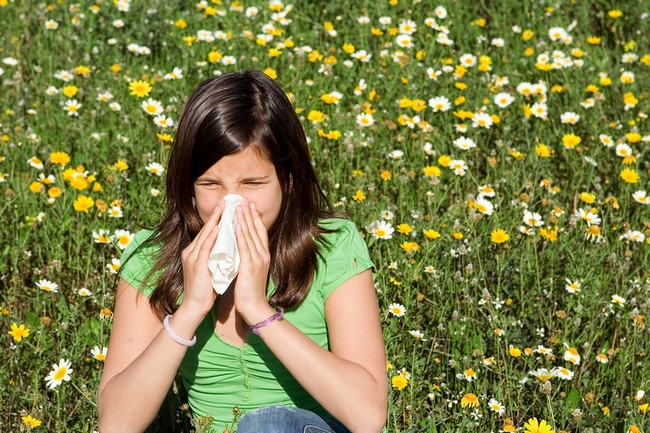- Make It Yourself Lavender Heart-Shaped Bath Bombs!
- 20 Things You Never Knew About “Down There”
- 12 Best Foods For Those Suffering From Arthritis Pain
- 12 Personal Hygiene Mistakes Almost Everyone Makes (Mom Never Told You About #4!)
- 15 Medicinal Plants And Herbs From The Cherokee People
- 12 Mind-Blowing Benefits Of Drinking Coconut Water During Pregnancy
- 12 Outstanding Winter Foods That Won’t Fatten You Up Like A Christmas Turkey
20 Ways To Treat Seasonal Allergies Naturally

Photo credit: bigstock.com
More and more people must be suffering from allergies every season because even the weather reports inform you of the pollen count outdoors. Some people who have never had allergies develop them as they get older.
How do you know if you have allergies? If you begin to sneeze, your eyes itch, and you feel lethargic out of the blue and there is no virus going around, you are probably having an allergic reaction to something seasonal outdoors that is blooming. Don’t worry, once you find the treatment that works for you, your itchy, sneezy, sleepy days will be over. Check out some of these treatments:
1. Probiotics
A clinical study gave a group of participants a specific type of probiotics in the amount of 40-90 billion colony-forming units every day, and it ended up lowering their nasal congestion. The recommended dosage is 10-29 billion, so make sure you check with your doctor before increasing the amount of probiotics before you take them.
2. Ginger
A study showed the anti-inflammatory benefits of ginger worked on the symptoms of allergy sufferers. Sneezing was reduced for those with hay fever, as was the production of mucus in the nose.
3. Pine bark extract
This item is called pycnogenol and is considered a flavonoid that can hold back histamines. When those who suffered from allergies took this extract up to 8 weeks before allergy season started, their symptoms significantly improved.
4. Bee products
Several bee products were tested and the most effective turned out to be propolis, which reduced the nasal rubbing and sneezing symptoms from allergies. Also myricetin, found in the pollen of bees, had an anti-allergic effect and worked on treating symptoms of allergies.
Continue to Page 2
































